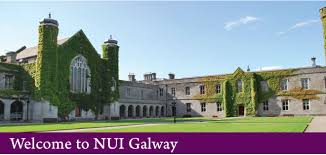M.Sc Childhood Speech, Language & Communication Needs
Course Overview
The aim of this MSc in Childhood Speech, Language, and Communication Needs is to provide a critical and conceptually sophisticated understanding of children with SLCN and the contexts of their lives. This programme has been designed to meet the needs of busy practitioners who need to keep up to date with the emerging evidence base when working with children with SLCN in the clinic, classroom, and community. (Note: it is not a professional qualification in speech and language therapy.)
Our flexible blended learning approach, combines face-to-face workshops (e.g., two days per module) and on-line learning to support you as a busy practitioner with many competing demands on your time. Course activities and skills training enable you to apply knew knowledge and skills directly in the clinic, classroom, and community.
Modules:
Supporting Children with SLCN
Learning outcomes
On completion of this module, students will be able to:
- Discuss the impact which speech, language and communication needs can have across a range of contexts including individual and societal levels (e.g., ICF, Bronfenbrenner)
- Discuss the relationship between language and literacy and numeracy in the classroom
- Critically appraise the policy context in relation to law/equality, health, and education as it relates to speech, language and communication intervention e.g., Disability Rights perspective, inclusive policies, New Language Curriculum, Early Childhood Curriculum Framework
- Discuss the methods which are used to screen for speech and language needs (e.g., those used by teachers, SLTs, and psychologists)
- Interpret the results of assessments in order to identify strengths and needs
- Discuss specific evidence-based intervention strategies to support children with SLCN in the classroom, clinic and community
- Critically appraise service delivery options e.g., pull-out, classroom-based intervention, clinic-based intervention, whole-school approach, models of multi-professional working.
Cultural, Linguistic, and Social Diversity in Health and Education
Learning outcomes
At the end of the module, students will be able to:
- Critically appraise a range of theories and cultural beliefs about bilingual language acquisition, childhood, child rearing, health/illness, and disability that will impact on practice
- Discuss the impact of parental addiction, neglect, poverty on child speech and language development and well-being
- Apply knowledge and understanding to assessment and intervention of culturally, linguistically, and socially diverse families
- Critically reflect upon their own cultural competence
- Problem solve working with interpreters
Using Evidence in Practice
Learning Outcomes
On successful completion of this module students should be able to:
- Describe the evidence based practice resources available which are relevant for practice in the clinic, classroom and community.
- Demonstrate proficiency in turning questions into effective search strategies.
- Appraise quantitative and qualitative research literature
- Analyse and synthesise information from multiple sources to draw valid inferences about the state of knowledge in a particular field.
Narratives in childhood
Learning Outcomes
On successful completion of the module you will be able to:
- Discuss stages of narrative development in childhood
- Discuss the characteristics of narrative associated with a range of clinical populations
- Compare and contrast a range of elicitation and analysis procedures
- Critically appraise a range of elicitation and analysis procedures
- Critically evaluate a range of elicitation and analysis procedures
- Discuss the available evidence base for narrative-based language interventions
- Discuss cultural diversity in narratives and their clinical significance
- Discuss the role of narrative in identity construction in childhood
Scholarships Available
Intakes
- Sep
Application Processing Time in Days: 30
Minimum English Language Requirements
| English Level Description | IELTS (1.0 -9.0) | TOEFL IBT (0-120) | TOEFL CBT (0-300) | PTE (10-90) | |
|---|---|---|---|---|---|
| Expert | 9 | 120 | 297-300 | 86-90 | |
| Very Good | 8.5 | 115-119 | 280-293 | 83-86 | |
| Very Good | 8 | 110-114 | 270-280 | 79-83 | |
| Good | 7.5 | 102-109 | 253-267 | 73-79 | |
| Good | 7 | 94-101 | 240-253 | 65-73 | |
| Competent | 6.5 | 79-93 | 213-233 | 58-65 | |
| Competent | 6 | 60-78 | 170-210 | 50-58 | |
| Modest | 5.5 | 46-59 | 133-210 | 43-50 | |
| Modest | 5 | 35-45 | 107-133 | 36-43 | |
| Limited | 4 | 32-34 | 97-103 | 30-36 | |
| Extremely Limited | < 4 | < 31 | < 93 | < 30 |
Admission Requirement / Eligibility Criteria
Entry Requirements
A primary degree with at least Second Class Honours or an equivalent qualification.
- Course Type: Part Time
- Course Level: Masters/PG Degree
- Duration: 02 Year
-
Total Tuition Fee:
14640 EUR
Annual Cost of Living: 12150 EUR
Application Fee: 35 EUR
Similar Programs
- M.A (Old & Middle Irish) at National University of Ireland Galway
- M.A (Playwriting & Dramaturgy) at National University of Ireland Galway
- M.A Politics and Sociology at National University of Ireland Galway
- M.A (Sports Journalism and Communication) at National University of Ireland Galway
- M.A (Theatre Practice and Production) at National University of Ireland Galway
- M.A (Writing) at National University of Ireland Galway

